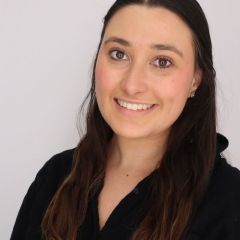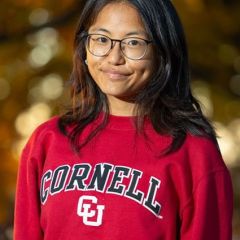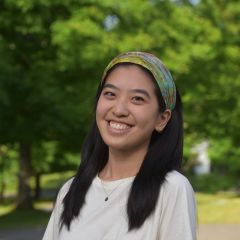Most will be on site by October.
The Fulbright program is the U.S. government's flagship international educational exchange program. The Einaudi Center administers the Fulbright program at Cornell, providing all the resources students and alumni need to apply for Fulbright funding for international experiences.
Cornell consistently ranks as a “top producer” among universities with the highest number of candidates selected for the Fulbright U.S. Student Program. With this year's Fulbrighters, we are celebrating over 600 awards since the 1940s!
We're excited to congratulate conservationist Kyrin Pollock, one of this year's five Fulbright–National Geographic Award recipients—and the first Cornellian ever to receive the prestigious award. Kyrin will spend the year working with the Olokhaktomiut Hunters and Trappers Committee in Ulukhaktok, Canada, to document how industrial noise is transforming Arctic waters. Watch for more news about her journey from National Geographic and Einaudi.
The next cycle of Fulbright U.S. Student Program is open now. The Einaudi Center encourages Cornell undergraduate students, graduate students, and recent alumni to explore the opportunity and apply.
Meet the Fulbrighters
Alexis Anderson '23
Honduras
Research: Impacts of Coastal Pollution on Stony Coral Tissue Loss Disease in Roatán, Honduras
“Improving the knowledge base on how SCTLD spreads is critical to help stop further global expansion of the disease.”
Read Alexis's abstract
Stony Coral Tissue Loss Disease (SCTLD) is an aggressive coral disease that is rapidly spreading in the Caribbean and decimating reefs. The coral disease was first reported on the island of Roatán, Honduras in 2020, but it has now spread to all three of the Honduran Bay Islands. Roatán, the largest of the three islands with the most tourism, is heavily impacted by the disease. There are identified geographical patterns of the disease spread in Roatán, which may be influenced by differences in environmental factors, such as water quality. Given this, I propose the following research question: is the spread of SCTLD in Roatán being exacerbated by coastal pollution? This will be determined by building on ongoing research and from field data collection on marine water quality and infected corals. However, with the Bay Islands' tourism economy being dependent upon the health of their coral reefs for diving and marine sightings, community understanding is a critical component to improving both coral reefs and coastal livelihoods. Research findings will be incorporated into environmental education presentations to be given to schools in Roatán as well as compiled for organizations partnered with the Bay Islands Conservation Association (BICA). By building on existing partnerships and networks, this project aims to advance the understanding and conservation efforts of corals infected with SCTLD in Honduras, which will in turn help infected corals in Florida's coral reef and in the Mesoamerican reef areas of Guatemala, Belize, and Mexico. Improving the knowledge base on how SCTLD spreads is critical to help stop further global expansion of the disease.
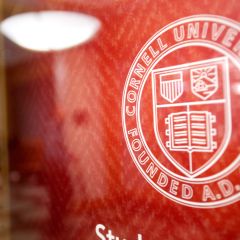
Erin Connolly '22
Norway
Research: Phorid Fly Biodiversity Across the Latitudinal Gradient of Norway
“Early months of my work in Trondheim will be based in the laboratory …, while the later months of the award will be dedicated to … a diurnal sampling scheme fieldwork project.”
Read Erin's abstract
Historic limitations to the identification fly families such as Phoridae attributed to morphological uniformity are shrinking with the application of integrative approaches to taxonomy. Ongoing research efforts at NTNU are changing the narrative of Phoridae as an under-explored fly family with multidisciplinary techniques that enable species discovery within the hyper-diverse group. As a scientist whose research experience is rooted in Diptera, my objective is to better understand the biodiversity and prevalence of the fly genus Megaselia (Diptera: Phoridae) across the latitudinal gradient of Norway with a focus on methodological sustainability. I will utilize university arthropod collections, sequencing technologies, and DNA barcoding to efficiently sort phorid flies. Data will be analyzed with phylogenetic and biogeographic tools; my focus on comparing phorid fly diversity across Norway's latitudinal gradient will take increased interest in comparing the variance of phorid flies in urban areas to remote regions, as I am interested in deciphering changes in species composition between industrialized areas versus remote regions. Early months of my work in Trondheim will be based in the laboratory learning the sequencing technologies behind DNA barcoding, while the later months of the award will be dedicated to assisting with the early stages of a diurnal sampling scheme fieldwork project led by Dr. Hartop. This fieldwork would encourage application of integrative methodologies to a prospective initiative within the collaborative research environment at NTNU.
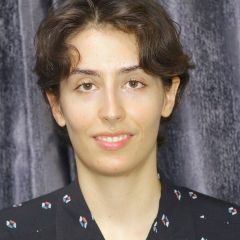
Isabella Culotta '22
Netherlands
Master of Design: Probing Our Perceptions of Waste at the Design Academy of Eindhoven
“Our aversion to speaking and even thinking about our waste constrains our discovery and implementation of innovative waste management systems.”
Read Isabella's abstract
I plan to pursue a Master of Design to investigate our attitudes toward human waste within the Critical Inquiry Lab Program at the Design Academy of Eindhoven (DEA). Our excreta carries immense value—in the taxes paid to treat it, the aquatic life it pollutes, the information it holds about our bodies, and its nutrients that we can process into fertilizers and energy. We all use a toilet every day, but led by taboos, denial, and cultural undertones taught from birth we are detached from its ubiquity in our lives. Our aversion to speaking and even thinking about our waste constrains our discovery and implementation of innovative waste management systems. I use art and science to investigate the chemistry of waste while exploring its subjective reality in human perception through public art- spurring conversations about our waste taboos. With collaborative installations in the North Brabant province, I will probe two assumptions of our "flush and forget" mentality toward waste. The first is that once excreted, our waste is no longer "ours." We do not need to, and shouldn't, think about it further: potty language stays in the bathroom. The second is that the Western "gold standard" of sanitation is the best and cleanest option—we are lucky to have it as civilians of the "developed world." I will examine these assumptions through public art installation and performance in North Brabant.
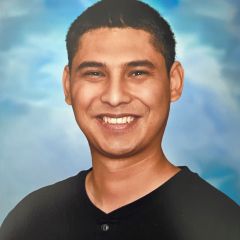
Gabriel Godines '23
Taiwan
English Teaching Assistant
“My experience in the U.S. Navy sparked my interest in East Asia, particularly in fostering understanding between the U.S. and China.”
Tenzin Kunsang '25
India
Research: Reconceptualizing Education in Exile: Transnationalism in the Tibetan Children's Village
“These findings will help … to promote domestic language and cultural preservation among Tibetan-American students amid the politicization of schools in Tibet.”
Read Tenzin's abstract
My project examines the mechanisms that foster sociocultural transnationalism within the Tibetan Children's Village, the largest Tibetan education system in exile, and how it fosters a sense of kinship. As a six-decade-long running institution, founded in Dharamshala, India, TCV has evolved in tandem with the sociopolitical "Tibet issue" within the India-China-U.S. triangle. As a result, there has been a rise in Himalayan descendants and overseas Tibetan, as well as a decrease in Tibetan refugees directly from Tibet. I will conduct this project in Dharamshala, particularizing the term "Himalayans" to analyze what regions are experiencing the most out-migration into TCV and why TCV is a more favorable schooling option compared to students' more proximate schools. I will contextualize these trends with current events, such as the conversion of a TCV branch to a school solely for overseas Tibetans, and how their mechanisms of promoting kinship in exile resemble or differ from the original TCV branch. Through semi-structured interviews, archival and ethnographic fieldwork, and participant observation, I will examine how TCV students have been key components in the institution's operational longevity. After I return to the States, these findings will help guide collaborative efforts with the Tibetan Alliance of Chicago to promote domestic language and cultural preservation among Tibetan-American students amid the politicization of schools in Tibet.

Michelle Lee '25
France
English Teaching Assistant
“Due to the COVID-19 pandemic in 2020, I missed an opportunity to study abroad in France. This setback has motivated me to regain the chance to experience the country firsthand.”
Tiffany Liu '22
Taiwan
English Teaching Assistant
“I … hope to observe the various technological initiatives currently pioneered by the Ministry of Education in Taiwan, including the movement to integrate AI.”
Kyrin Pollock, MEng '19
Fulbright–National Geographic Award Recipient (Canada)
Research: Arctic Echoes: Exploring Inuvialuit Knowledge and Marine Soundscapes in Conservation
“My work will address a gap in Arctic marine bioacoustics research … with documentation of Indigenous knowledge and an audio sample of the changing Arctic Ocean soundscape.”
Read Kyrin's abstract
I plan to co-lead an investigation with Inuvialuit (Inuit of the western Canadian Arctic) and the Arctic Noise Research Team at the University of Victoria to study the role of anthropogenic noise in Arctic waters. Driven by the goals of the Olokhaktomiut Hunters and Trappers Committee (OHTC), I will document knowledge on the Arctic marine soundscape through interviews and observations with OHTC members and through compiling a sound-lapse of the waters surrounding the hamlet of Ulukhaktok. The investigation will explore two key questions: What are the implications of anthropogenic marine noise for Inuvialuit culture and livelihoods? How are Inuvialuit responding to the altered soundscape and the changing behaviors of the animals they rely on in the Beaufort Sea? Answers to these questions are critical. Sound is a key indicator of ocean health, and with the rapid warming and subsequent industrialization of the Arctic, noise pollution is expected to become more acute. My work will address a gap in Arctic marine bioacoustics research by contextualizing scientific research with documentation of Indigenous knowledge and an audio sample of the changing Arctic Ocean soundscape. The compiled audio collection will be archived in sound libraries in Canada and the United States, and aired on public radio in the Inuvialuit Settlement Region. My previous experience in participatory action research, interviewing, marine bioacoustics, and experiences in the Arctic have prepared me for this work. My Fulbright will continue to advance my career working in community-led conservation.
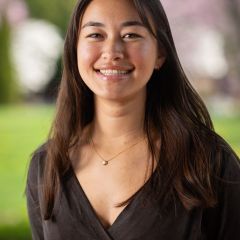
Caitlyn Sams '25
Jamaica
Research: Herbal Medicine in Oncology: Safety of Psilocybin and Cancer Therapy Co-Medication
“This project will … spark conversations about herbal medicine use and promote avenues for holistic cancer care.”
Read Caitlyn's abstract
I propose to investigate the use of herbal medicine in combination with prescription cancer medication. Over 80% of cancer patients in Kingston, Jamaica, use herbal medicines for pain relief and palliative care treatment. Among these medicines, psilocybin containing “magic mushrooms” are some of the most effective. However, many clinicians remain hesitant towards herbal medicine use, leading to poor communication between oncologists and patients. Since so many physicians are unaware of their patients' self-medication habits, and because some substances give rise to serious repercussions when co-administered with prescription medicine, the interactions between psilocybin mushrooms and oncological pharmaceuticals is an important area for investigation. Specifically, psilocin's interaction with drug metabolizing Cytochrome P450 (CYP) enzymes is vital for determining the safety of co-medication. I propose to collaborate with Dr. Rupika Delgoda at the Caribbean Centre for Research in Bioscience of the University of the West Indies to investigate the impact of Psilocybe cubensis mushrooms on cancer cells and the activities of CYP enzymes to determine implications of co-medication with cancer therapies. In addition, I will work with Dr. Dingle Spence at the Jamaica Cancer Care and Research Institute to perform a qualitative study exploring physician perspectives towards psilocybin use in oncology clinics throughout Kingston. This may improve understanding and communication between physicians and cancer patients. This project will inform us about psilocybin and cancer therapy co-medication, spark conversations about herbal medicine use, and promote avenues for holistic cancer care.
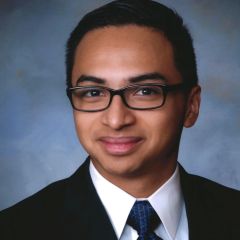
Miguel Soto Tapia '20
Taiwan
English Teaching Assistant
“I want to undertake an English teaching assistantship in Taiwan because I love language, teaching, and mentoring.”
Apply for Fulbright
The Einaudi Center supports you throughout the entire process of applying. The Fulbright U.S. Student Program is open to undergraduate students, graduate students, and recent Cornell alumni.
Learn More about Fulbright


